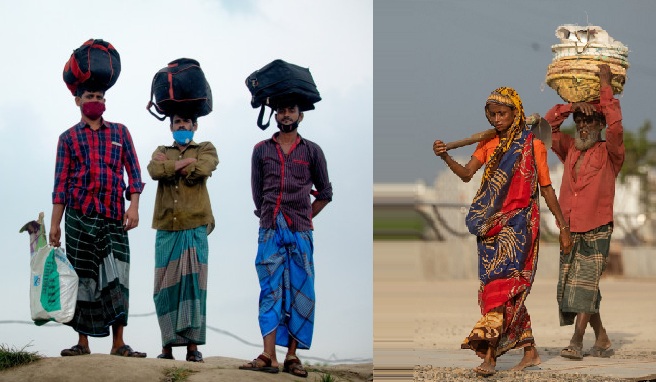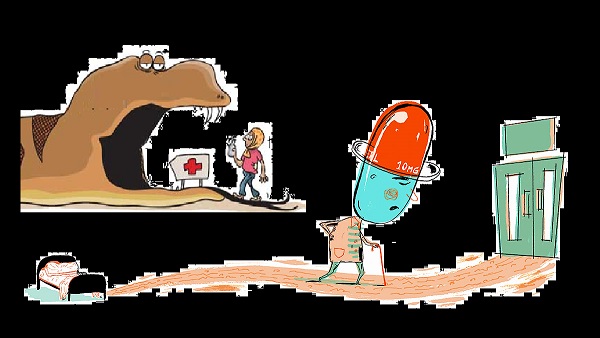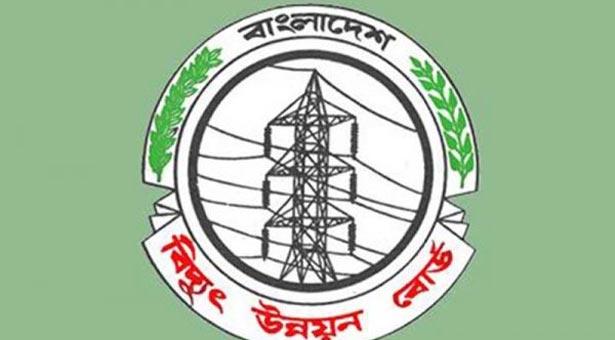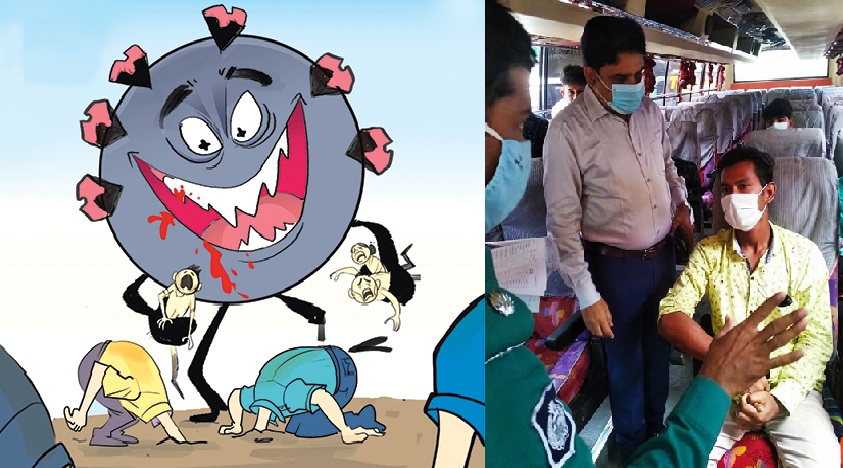Six years ago, Mohammad Hafez, 28, left Rasulpur village in Bhola and came to Dhaka in search of a better life. But in March this year, he was back to his rural home after the coronavirus pandemic brought an end to all he had gained here in the city.
His first job was at a garment factory. The pay was low and the work gruelling. But he toiled there until years later he joined his brother's tailoring shop in Ashulia, on the outskirts of the capital.
Not that he earned significantly more but the flexible working hours there were a relief. He got married, and his family back in the village grew with time.
Life had settled into a rhythm until the Covid-19 outbreak and the government's measures to contain it brought the economy to a grinding halt and almost overnight Hafiz found himself without an income.
Small entrepreneurs, day labourers and other workers in the informal sector were the first in line to take the blow because they have little cushion against any health and financial shocks. And this time a health concern threatened to ruin both the social and economic balances.
There were a series of events unfolding.
Shops and offices had remained closed between March 26 and May 30 to enforce the social distancing norms – one of the effective ways suggested by public health experts to break the chain of the coronavirus transmission.
That had brought all activities to a sudden halt. Businesses with small investments did not have the deep pockets to take the loss of income for such a long time. Most of the workers in these businesses left Dhaka as continuing to live in one of the most expensive cities in the world without a steady income was not a realistic idea.
Even after the "lockdown" was relaxed the businesses and industries continue to suffer from depressed demand since the cases of infection and fatality keep rising at an alarming rate.
In the second wave of economic shock, employees in the formal sector faced layoffs forcing them to tighten their purse strings, further affecting the income of the informal sector.
The result was losses of jobs and incomes of hundreds of thousands of people. With rents becoming overdue and facing evictions, most of them were forced to go back to their roots to hunker down for a better time to restart life.
Reopening did not relight businesses
Abu Taleb, running a tailoring shop in Bashundhara City Shopping Complex, a mega mall in the capital, was looking forward to brisk business as he reopened on June 11. He was planning to soon call back his four workers. But his hope was short lived.
Now he dreads that all the hard work building his business over the almost last two decades might just come to naught because of the pandemic.
Taleb has five-month house rents and six-month shop rents due. He is yet to pay the rent of his factory where his tailors made fancy dresses just a few months back. Only the last month's service charge and other costs amounted to more than Tk1 lakh, but his income was a mere Tk10,000.
"I am hoping that God will show mercy to me. There is no other work that I know of for a living. I wonder what I'll do if my business does not turn around," Taleb said.
The 36-year-old has already sent his parents, wife and children to his village home to cut back on expenses.
He said he would find house mates for his Dhaka home to split the rent. Taleb has also been looking for sources to borrow cash to make partial payments so that he can keep his shop until the situation gets better.
No scope of return anytime soo
People like Hafez, however, do not expect to return to the city anytime soon. He sold his only possession in the city – a cheap wooden cot – before saying goodbye to his roommates in the mess he had lived in.
"There was no luck trying for a job in the garment sector as well when it was laying off so many of its workers. I took all my clothes and a few utensils with me."
Hafez's elder brother, Mohammad Farsin has recently closed the tailoring shop in Dhaka, where Hafez worked with the orders having dried up. He is also packing up to return to Bhola with his wife and children.
Meanwhile, Hafez has been sitting idle in Rasulpur village for three months with eight family members depending on him. They have been living on borrowed money that Hafez is hoping to pay off by selling a part of their homestead.
Covid-19 pushes up poverty
The Centre for Policy Dialogue (CPD), a think-tank, projected that Covid-19 would push up the national poverty rate to 35% this year from 24.3% in 2016.
The internal migration – from rural areas to the capital and urban centres – have been thought of as a shift from agriculture to industrial production, that has reduced poverty and improved living standards to a great length.
In spite of working hard all the day, a rickshaw puller could not return to his home with satisfaction. Their earning has significantly decreased since the coronavirus outbreak in the country. Photo: Mumit M/TBS
In terms of Gross Domestic Product, the contribution of agriculture dropped from 32% to 19% and the industrial production increased from 21% to 28% between 1980 and 2010, according to the United Nations Development Programme.
Employment gap also declined over the last decade between the agriculture and the service sector and the agriculture and the industrial sector.
According to a report of the International Labour Organisation published before the pandemic, the service sector was supposed to surpass agricultural employment this year. Both the sectors had around 27.3 million people employed in 2019. The industrial sector also had seen a sharp rise in employment, having 14.10 million workers last year.
The pandemic has proved all estimates wrong when the demand for anything other than essentials is an all-time low.
Jobless people are again looking to embrace agriculture when everything else has shut their door on them in this time of highest-ever downturn in decades.
Hafez has decided that he would take up farming. He is counting on microcredit organisations such as Brac for a loan to invest and youth development programmes for training.
"They asked me to wait for another month for loans," he said.
Nazneen Ahmed, a senior research fellow at the Bangladesh Institute of Development Studies, said agriculture would be under immense pressure owing to the sudden influx of a large number of people to the rural settings.
Labour in farming might become cheaper. But there is a scope of employment generation if the government emphasises improving the supply chain, Nazneen said.
Some training programmes might be taken up as well so that people with education can learn the basics to start agriculture-centric businesses, for example, online delivery of products, she added.
The CPD also considers agriculture as one of the most vital sectors to save the "new poor" emerging from the pandemic.
"A vibrant agriculture sector will support the cause of creating additional employment opportunities for people who are likely to lose jobs and livelihood opportunities in urban and peri-urban informal sectors," it said.















